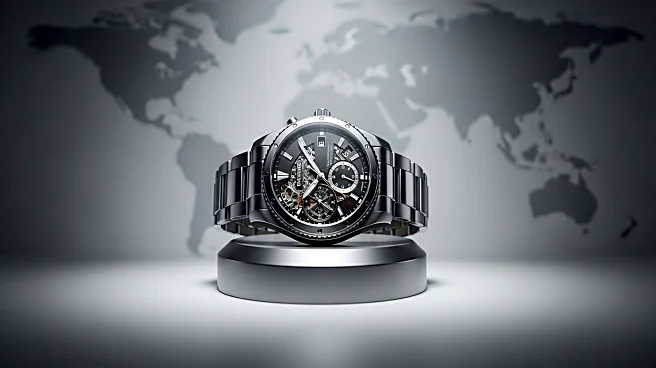What's Happening?
President Trump attended the men's final at the US Open as a guest of Rolex, amidst the backdrop of a newly implemented 39% tariff on Swiss goods. This tariff, one of the highest globally, was introduced by the White House over a month ago, significantly affecting Swiss watchmakers. The levy comes at a time when high-end watch sales were already experiencing a downturn. Trump's appearance at the US Open marked his first visit to the tournament in a decade, with mixed reactions from the audience. The tariff has raised concerns among Swiss watchmakers, who are facing existential threats due to the increased costs of exporting to the U.S.
Why It's Important?
The 39% tariff on Swiss watches represents a significant shift in U.S. trade policy, potentially affecting luxury goods markets and international trade relations. Swiss watchmakers, who rely heavily on the U.S. market, may face substantial financial challenges, leading to possible reductions in exports and sales. This move could also influence consumer prices and demand for luxury watches in the U.S., impacting retailers and consumers alike. The tariff reflects broader geopolitical tensions and trade strategies, with potential implications for other industries and international trade agreements.
What's Next?
Swiss watchmakers may need to explore alternative markets or adjust pricing strategies to mitigate the impact of the tariff. The U.S. luxury goods market could see shifts in consumer behavior, with potential increases in prices or changes in brand preferences. Stakeholders, including industry leaders and trade organizations, may engage in discussions or negotiations to address the tariff's consequences. Additionally, the tariff could prompt further diplomatic interactions between the U.S. and Switzerland, potentially influencing future trade policies.
Beyond the Headlines
The tariff on Swiss watches highlights the complexities of international trade and the potential for economic nationalism to affect global markets. It raises questions about the balance between protecting domestic industries and maintaining healthy international trade relations. The move may also spark debates on the ethical implications of tariffs and their impact on global economic equality and cooperation.










